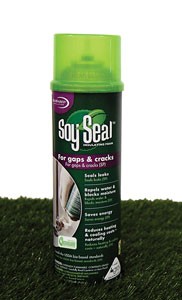USB Confirms Soy-based Polyols as Reliable Alternate to Conventional Polyurethane Feedstock

ST. LOUIS, MO – June 23, 2014 – As corporate sustainability efforts continue to rise – along with petrochemical prices – manufacturers are increasingly searching for alternative polyurethane feedstocks.
To fill the need, the United Soybean Board (USB) supports research, testing and development of products containing soy-based polyols. Soybean polyols offer equal or better performance than petrochemical feedstocks. Equally important, soy-based polyols have a carbon benefit over petroleum-based polyols, according to a Life Cycle Impact Analysis conducted by Omni Tech International for USB and peer reviewed.
The study confirms 5½ pounds of carbon dioxide equivalents are removed or prevented from entering the atmosphere for every pound of soy-based polyol that replaces a pound of petroleum-based polyol in a product.
The same study shows it takes less fossil fuel to produce a pound of soy-based polyol than a pound of petroleum-based polyol. The manufacturing process takes less energy, too. It also emits less carbon dioxide, methane and nitrous oxide into the atmosphere. Manufacturers have been using soy-based feedstock in products ranging from carpet backing and spray-foam insulation to automotive foam seating, bedding and furniture cushioning.
About United Soybean Board: USB invests in research and marketing activities for U.S. soybeans and soy products. For more information, please use the contact information and link provided below.
Disqus website name not provided.









































